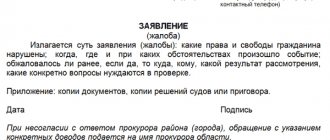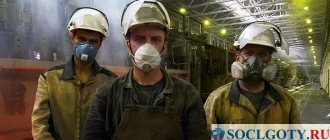A trade union (trade union) is a voluntary association of employees of a particular enterprise to protect their rights and interests . The freedom of activity of such associations is enshrined in Art. 30 of the Constitution of the Russian Federation. In the middle of the last century, the activities of trade union organizations consisted of creating various workers' commissions, friendly courts, people's squads, holding competitions in honor of significant anniversaries, organizing health improvement and recreation for workers.
But when there is economic instability in a country, a decline in production, which entails a reduction in the number of workers in various fields of activity, social tension in society increases. Disagreements between the employee and the employer, in cases of violation of labor laws, non-payment of wages, reductions and dismissals - all these are problems of the working population, which the trade union is capable of solving. And only trade unions, through their activities, must protect the interests of workers , influence the employer, and ensure control over the implementation of the collective agreement. Trade unions are the representatives of workers and therefore they will always exist because there are two opposing interest groups: employers and workers.
Trade union: what employers are afraid of
Even if the company does not have a trade union, but there are employees with an active life position, then the emergence of a trade union can be expected at any time. After all, you don’t need many formalities to create it.
Trade unions are a serious force that can resist employer actions that are unfavorable for workers. Therefore, it is rare to find a company that independently decides to organize a trade union of its employees. As a rule, the initiative is taken by employees who want to reconsider working conditions, are afraid of layoffs or that the organization will violate their labor rights. Moreover, a small number of workers is sufficient to organize a trade union - the legislation does not specify the minimum number of people required for a primary trade union organization. Since a trade union is a public association, the Federal Law of May 19, 1995 No. 82-FZ “On Public Associations”, Art. 18 of which says that public associations are created on the initiative of their founders - at least three individuals.
At the same time, the employer should not interfere with the creation of a trade union - this is illegal and may lead to conflict with employees.
The main regulatory legal act, in addition to the Labor Code of the Russian Federation, which regulates the activities of trade unions, is Federal Law No. 10-FZ of January 12, 1996 “On trade unions, their rights and guarantees of activity” (hereinafter referred to as Law No. 10-FZ). According to paragraph 1 of Art. 2 of this law, a trade union is a voluntary public association of citizens bound by common production and professional interests in the nature of their activities, created for the purpose of representing and protecting their social and labor rights and interests.
GOOD TO KNOW
Currently, personnel management technologies offer various options for material and non-material motivation of employees to maintain a balance of interests of both sides of the labor relationship. Labor legislation, in turn, establishes minimum guarantees for workers, which are mandatory for employers. Among other things, it provides for the right of workers to unite to protect their labor rights in a special public organization - a trade union.
To form a trade union, it is necessary to gather at a congress, conference or meeting and make a decision to create a trade union. At the meeting, approve the charter and list of participants. The charter of the primary trade union organization, in particular, indicates: the name, goals and objectives of the trade union; categories and professional groups of united citizens; conditions and procedure for the formation of a trade union, admission to and withdrawal from the trade union, rights and obligations of trade union members, etc. (Clause 2 of Article 7 of Law No. 10-FZ). Next, the state registration of the trade union as a legal entity is carried out (Article 8 of Law No. 10-FZ). It is important to note that a trade union organization has the right not to register (paragraph 9, paragraph 1, article 8 of Law No. 10-FZ). In this case, the trade union simply will not have the rights of a legal entity. But this will not prevent the trade union from defending the social and labor rights and interests of workers in court (Article 7 of Convention No. 87 of the International Labor Organization “Concerning freedom of association and protection of the right to organize”, adopted in San Francisco on 07/09/1948 on the 31st th session of the ILO General Conference). The courts reach a similar conclusion. Thus, the Vladimir Regional Court, in its appeal ruling dated May 21, 2013 No. 33-1612/2013, indicated that in total, based on the substantive legal meaning of the listed norms and taking into account the provisions of Art. 7 of Convention No. 87, the rights of trade unions in the field of representation and protection of social and labor rights and interests of workers are exercised regardless of whether they are registered as a legal entity or not, including when protecting rights and interests in court.
GOOD TO KNOW
A trade union is not required to register as a legal entity. If workers have not decided to register a trade union, then it can operate from the moment of its creation (signing the protocol on creation, approval of the charter). Moreover, the employer cannot restrict his activities, even if the latter is not registered.
If a trade union has appeared in an organization, you need to understand that you will now have to take into account its opinion on certain issues. But first of all, it is necessary to provide the union with working conditions.
According to Art. 32 of the Labor Code of the Russian Federation, the employer is obliged to create conditions that ensure the activities of employee representatives in accordance with labor legislation, collective agreements, and agreements. The equipment, premises, vehicles and communications necessary for its activities are transferred to the trade union for free use in accordance with the collective agreement. In addition, the employer can transfer for free use to trade unions the buildings, structures, premises and other objects that are on the balance sheet of the organization or leased by it, as well as recreation centers, sports and health centers necessary for organizing recreation, conducting cultural, educational, physical culture and recreational work. with employees and members of their families. At the same time, economic maintenance, repairs, heating, lighting, cleaning, security, as well as equipment of these facilities are carried out by the organization, unless otherwise provided by the collective agreement or agreement (Article 28 of Law No. 10-FZ). An employer with more than 100 employees must transfer to the trade union at least one equipped, heated, electrified premises, as well as office equipment, communications equipment and the necessary regulatory legal documents. If there are two or more trade unions in an organization, this does not mean that the premises should be represented for everyone.
Weaknesses of trade union association
With proper organization of work, a trade union requires endurance and the desire to actively fight for the interests of each employee.
Strong trade union associations must effectively protect the interests of the employee . The influence of trade unions in society must be supported by unity of action, increased professional training, strict discipline, strengthening the significance of the trade union movement and the publicity of the work carried out. The negative side of involving workers in a trade union organization is that when a person has every penny in his account, he does not want to transfer membership fees to the trade union.
- Trade unions exist on deductions from trade union membership fees , but the amounts are so small that the material side of the issue of joining or not joining a trade union seems unreasonable.
- The passivity of the trade union movement is reflected in the fact that many refuse membership. The trade union needs and is important for bright, active personalities who are able to quickly delve into and resolve incoming issues so that the activities of the trade union are visible. The chairman of the organization's trade union committee should be a person with the qualities of a leader who is good at persuasion and eloquence.
- Trade unions protect, but weakly , because the owners of private enterprises may not engage in dialogue, may violate human labor rights, and often the trade union does not have any impact.
- Vacation and recreation vouchers are difficult to obtain because their number is limited.
- Certification of workplaces for compliance with normal working conditions is sometimes incomplete and of poor quality.
EXAMPLE FROM JUDICIAL PRACTICE
The Sverdlovsk Regional Court, in its appeal ruling No. 33-10849/2014 dated August 15, 2014, indicated that the employer’s obligation to create conditions for the activities of trade union organizations does not mean that each of the trade union organizations existing at the enterprise should be provided with premises.
The employer is obliged to provide at least one premises, and the elected bodies of trade union organizations themselves determine among themselves the procedure for using this premises. Other improving conditions for the trade union may be provided for by the collective agreement (Article 377 of the Labor Code of the Russian Federation). If there is no collective agreement, then the conditions can be fixed in an agreement between the employer and the trade union.
GOOD TO KNOW
A trade union representative may contact the head of the company with a demand to create working conditions. In this case, the company is obliged to provide the trade union with free use of equipment for holding meetings, storing documentation, premises, vehicles and communications, as well as the possibility of posting information in a place accessible to all employees.
Union opinion
The employer, in cases provided for by law, collective agreement or agreements, before making a decision, sends a draft local regulatory act and the rationale for it to the elected body of the primary trade union organization, representing the interests of all or the majority of employees (Article 372 of the Labor Code of the Russian Federation). These are, in particular, draft local regulations that establish:
- procedure for certification (Article 82 of the Labor Code of the Russian Federation);
- list of positions of workers with irregular working hours (Article 101 of the Labor Code of the Russian Federation);
- dividing the working day into parts (Article 105 of the Labor Code of the Russian Federation);
- the amount and procedure for paying additional remuneration to employees, with the exception of employees receiving a salary (official salary), for non-working holidays on which they were not involved in work (Article 112 of the Labor Code of the Russian Federation);
- the procedure and conditions for providing employees with additional leaves (Article 116 of the Labor Code of the Russian Federation);
- wage system (Article 135 of the Labor Code of the Russian Federation);
- introduction, replacement and revision of labor standards (Article 162 of the Labor Code of the Russian Federation);
- internal labor regulations (Article 190 of the Labor Code of the Russian Federation);
- the procedure for applying the rotational work method (Article 297 of the Labor Code of the Russian Federation);
- the amount and procedure for paying bonuses for shift work with other employers (Article 302 of the Labor Code of the Russian Federation), etc.
The opinion of the trade union must be taken into account when making decisions on the introduction of part-time and part-time work, on attracting workers to overtime work, when developing and approving rules and instructions on labor protection, when dismissing workers who are members of the trade union on the grounds provided for in paragraph .P. 2, 3 or 5 hours. 1 tbsp. 81 Labor Code of the Russian Federation. Thus, in paragraph 26 of the resolution of the Plenum of the Armed Forces of the Russian Federation dated March 17, 2004 No. 2 “On the application by the courts of the Russian Federation of the Labor Code of the Russian Federation” it is stated that if the employer has not received the consent of the trade union in the case where this is mandatory, the dismissal of the employee is illegal and he is subject to reinstatement at work.
What is now called a trade union?
People unite in alliances to jointly defend common interests. This also applies to trade unions - a voluntary consolidation of people working in one field (usually at one enterprise) to represent and protect labor rights and ensure the social needs of workers.
From the history of trade unions
Workers' associations began to emerge in opposition to exploitation. The very first such associations arose in England in the mid-18th century, and then became widespread throughout the world. They were called differently in certain regions, but had similar functions and powers:
- in England - “trade unions” (Trade-Unions);
- in the USA - the Knights of Labor, and then the American Federation of Labor;
- in Germany there are several types of workers' associations: Christian, social democratic, etc.;
- in France - syndicates;
- In Russia, starting from the 19th century, workers' partnerships and unions were created, which during the USSR united into the All-Union Central Council of Trade Unions, the successor of which in the Russian Federation was the FNPR and the Union of Independent Trade Unions.
EXAMPLE FROM JUDICIAL PRACTICE
The Omsk Regional Court, in its appeal ruling dated 04/06/2016 No. 33-2763/2016, satisfied the requirement to declare the dismissal illegal, change the wording of the dismissal, collect wages for the period of forced absence, and compensate for moral damage.
Circumstances: on the basis of the defendant’s order, a disciplinary sanction was applied to the plaintiff in the form of dismissal for repeated failure to fulfill job duties without good reason. Despite the fact that the plaintiff is a member of a trade union organization, the defendant did not contact the trade union organization to obtain a reasoned opinion on the possibility of her dismissal. During the period for making a decision on disciplinary action, the plaintiff filed an application for termination of the employment contract on her own initiative, but the defendant ignored it.
GOOD TO KNOW
The employer has to take into account the opinion of the trade union committee in cases provided for by the Labor Code of the Russian Federation, other federal laws and other regulatory legal acts, as well as the collective agreement and agreements.
It is necessary to take into account the opinion of the trade union if the employer intends to dismiss trade union members due to a reduction in numbers, the employee’s inadequacy for the position held, or the employee’s repeated failure to fulfill work duties without good reason (Article 373 of the Labor Code of the Russian Federation). The employer must submit to the trade union a draft order and copies of the documents that became the basis for dismissal. Within seven days, the trade union must give its consent or refuse consent. There is also a ruling by the Constitutional Court on this topic. Thus, the highest court clarified that Art. 374 of the Labor Code of the Russian Federation establishes an absolute ban on the dismissal of employees who are members of trade union bodies without the employer obtaining the prior consent of a higher elected trade union body for dismissal.
As for trade union leaders - members of the elected collegial bodies of the primary trade union organization, they can be dismissed due to staff reduction or due to inadequacy of the position held only if the consent of not only the trade union, but also the higher trade union organization is obtained (Article 374 of the Labor Code of the Russian Federation) .
The employer may dismiss such an employee without taking into account the opinion of a higher elected trade union body if such an opinion was not submitted within the prescribed period or if such an opinion is recognized by the court as unfounded.
GOOD TO KNOW
If the employer does not agree with the opinion of the trade union committee, then he is obliged to conduct additional consultations with him within three working days after receiving a reasoned opinion.
Conclusion of collective agreements
The trade union has the right to participate in negotiations regarding the preparation, conclusion or amendment of a collective agreement (Article 36 of the Labor Code of the Russian Federation). The following trade union organizations can represent the interests of workers in this case:
- uniting more than half of the organization’s employees;
- uniting less than half of the employees, if the general meeting of employees has instructed to represent their interests;
- a single representative body of several trade union organizations (Article 37 of the Labor Code of the Russian Federation).
If a trade union has initiated the procedure for concluding a collective agreement, the employer does not have the right to evade it. Otherwise, the organization will face a warning or an administrative fine in the amount of 1,000 to 3,000 rubles. (Article 5.28 of the Code of Administrative Offenses of the Russian Federation). You must enter into negotiations within seven days of receiving the proposal from the union. The start day of collective negotiations will be the day following the day the initiator of the negotiations receives a response (Article 36 of the Labor Code of the Russian Federation). If the parties have not reached agreement on certain provisions of the draft collective agreement within three months from the date of the start of negotiations, they must sign the collective agreement on the agreed terms and draw up a protocol of disagreements (Article 40 of the Labor Code of the Russian Federation).
IMPORTANT IN WORK
Failure by an employer or his representative to participate in negotiations on concluding a collective agreement shall entail the imposition of an administrative fine in the amount of 1,000 to 3,000 rubles.
Violation of workers' rights
As a rule, trade unions are created to ensure that the rights of workers are not violated. According to Art. 29 of the Labor Code of the Russian Federation, the primary trade union organization represents the interests of workers when considering labor disputes between workers and the employer. Trade unions have the right to go to court on behalf of workers.
Charter
The basic organizational rules are formed in the Trade Union Charter. The list of conditional points of which it consists is below.
- Name, purpose, functions, tasks of the organization.
- Groups and divisions to which trade union members belong.
- Rules for changes to the Charter and other documentation.
- Composition of the trade union.
- Requirements for trade union members, rights and obligations.
- Organizational issues responsible for the activities of the association.
- Sources of financing.
- Procedure for paying membership fees.
- Rules for managing trade union property.
For state registration, it is necessary to provide the Charter, the original document on the decision of the congress of the trade union association, the decision to approve the Charter and a list of those wishing to join the trade union.
Upon presentation of this package of documents to the executive bodies, the organization is registered as a legal entity.
EXAMPLE FROM JUDICIAL PRACTICE
The Sverdlovsk Regional Court, in its appeal ruling dated April 14, 2016 No. 33-6141/2016, partially satisfied the demand of the Federation of Trade Unions of the Sverdlovsk Region, which acted in defense of the rights and legitimate interests of a trade union member, to recognize as unlawful the deprivation of compensation to an employee for harmful working conditions and the obligation to restore them , provide additional paid leave, collect premiums for hazardous working conditions, pay overtime, and compensate for moral damages. The trade union organization referred to the failure to provide compensation established by the court decision, as well as the illegality of canceling compensation after a special assessment of working conditions.
- Back
- Forward
The role of the trade union in society
A trade union is an association of members of professional organizations to resolve common internal issues. It is no secret that for many, this is just a faded association with the issuance of trade union vouchers to sanatoriums and other pleasant bonuses. The real goal lies in protecting the rights of the labor force, or more precisely, workers, and maintaining their interests.
There are many trade unions. In order to become a member of the association, you must write 2 applications for membership. One is written for the trade union committee, the other is sent to the accounting department. Its content should notify about the collection of membership fees. Next, after reviewing all applications, a decision is made to accept the employee into the organization.
If there is no trade union at your own enterprise, the employees themselves can create one. To do this, at least 3 people must come together with the initiative.
The role of the union is to protect the rights of its team in the event of disputes, labor violations and disagreements. If an employee has problems with management, he can safely turn to the trade union for help, where more experienced ones will understand the situation, take on the role of defense and try to defend the employee’s position on the legal rights of their organization.
Thus, the social role of the trade union is to solve the following problems:
- determination of operating mode;
- analysis of social issues;
- pension provision;
- wages of the working population;
- work process safety;
- fines and violations;
- occupational Safety and Health.
Positive opinion
If the reasoned opinion of the trade union committee contains agreement with the draft local act, then the document is considered accepted taking into account the opinion of the trade union body. At the same time, it must contain a mention that the opinion of the trade union has been taken into account.
An example of drawing up a local regulatory act of an organization, taking into account the opinion of the trade union. The motivated opinion of the trade union committee contains agreement with the provided draft document
A trade union has been created in the organization. In January, she developed a draft Regulation on remuneration. On January 18, the draft document and its accompanying letter were sent to the trade union committee for approval. On January 22, the trade union committee sent a reasoned opinion to the organization regarding its agreement with the draft local regulatory act. On January 25, the Regulations on remuneration were adopted and approved by the head of the organization, taking into account the opinion of the trade union body.









